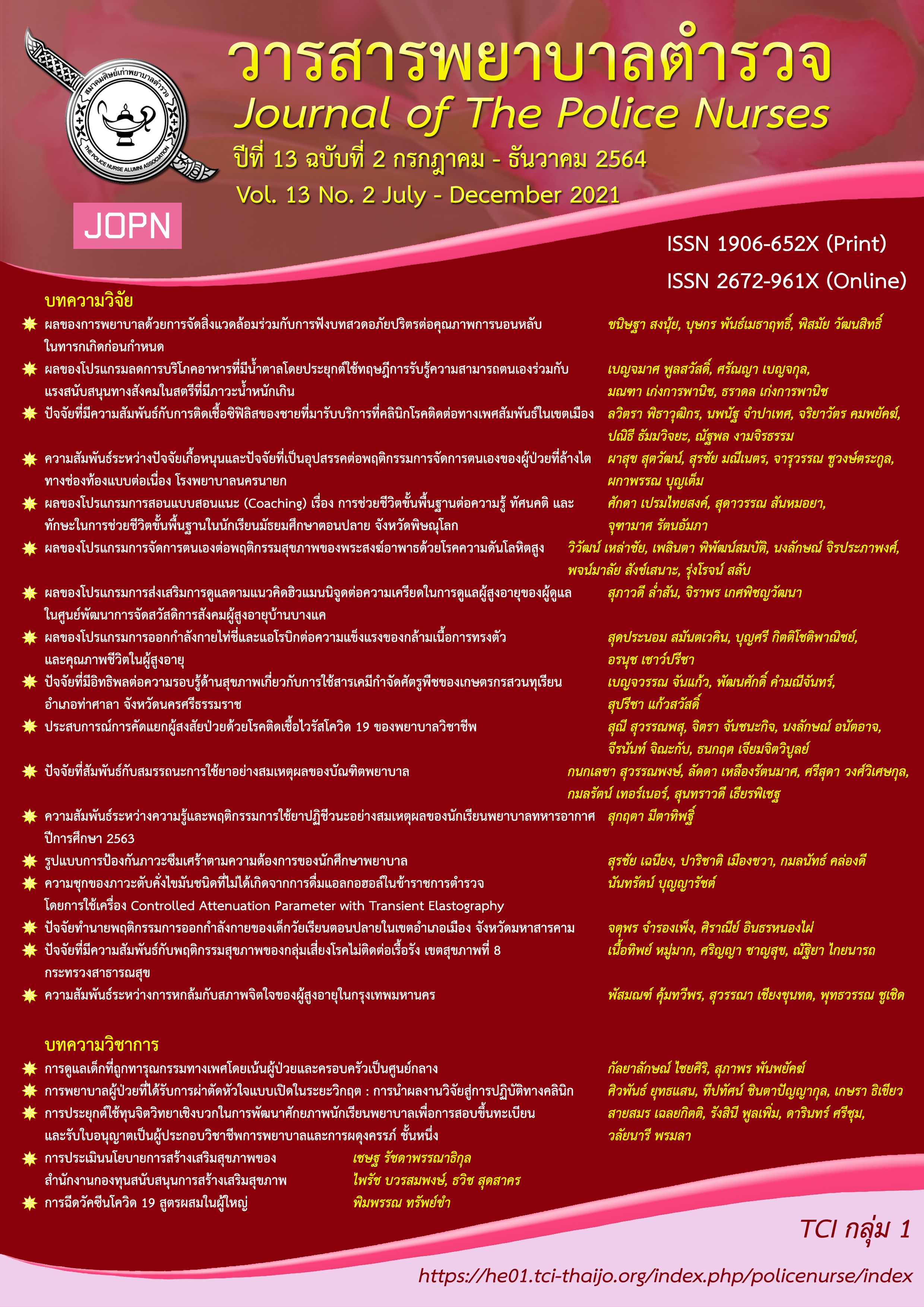APPLYING POSITIVE PSYCHOLOGICAL CAPITAL FOR IMPROVING NURSING STUDENTS’ CAPACITY TO PASS NURSING LICENSE EXAMINATION
Keywords:
positive psychological capital, Yokpanya program, nursing licensing examinationAbstract
Graduated Nurses should have qualified nursing competencies to provide standard nursing practice to clients. Thailand Nursing and Midwifery Council is the organization responsible for quality control of graduated nurses before working in the health care system by developing the nursing licensing examination. Every year all graduated nurses from Thai nursing colleges or universities must pass this national licensing examination in order to be issued Thai nursing and midwifery licenses for working as registered nurses in Thailand. The Royal Thai Army Nursing College applies positive psychological capital to improve the 4th year nursing students’ capacity to pass the nursing licensing examination at the first time by Yokpanya program. Nursing students should pass the 1st exam successfully to maintain professional standards and a good future for nursing graduates.
Downloads
References
Ankanawin, U., Untaja, P., Yuroong, A., & Bohplian, S. (2020). Perception of royal Thai army nursing students towards elderly care before studying gerontological nursing. Journal of The Royal Thai Army Nurses, 21(2). 140-149.
Bandura, A. (1997). Self-efficacy: The exercise of control. New York, NY: W.H. Freeman and Company.
Chaleoykitti, S., Poonruksa, S., Prasertsong, C., Pungbangkadee, R., Chaiyasung, P., Taweewanich, S., & Satsin, T. (2021). The effect of the positive psychological capital program on smoking cessation of the conscripts. Journal of the Police Nurses, 13(1), 190-198.
Chaleoykitti, S. Srithumsuk, W., Jaipong, S., Pattayakorn, P., & Podimuang, K. (2020). Association between clinical characteristics and quality of life in older people with stroke at hospital discharge. Advances in Aging Research, 9, 67-76.
Chaleoykitti, S., & Suruksa, N. (2010). Positive psychological capital and human development. Journal of Psychology, 16, 106-117.
Chaleoykitti, S., Suruksa N., Khedpituk, P., & Thongkhumpunjong, S. (2012). The development of positive psychological capital of professional nurses through integrative group counseling. Journal of Psychology, 18, 9-27.
Hongtiyanon, T., Tipawong, A., Yodkolkij, L, & Chaleoykitti, S. (2019). The effectiveness of perceived self-efficacy program for assisting adolescences towards behavioral of avoiding narcotics. Royal Thai Army Medical Journal, 72(1). 33-40.
Kongyoo, S. (2017). Predictor of the result of the license examination of graduated nurses, Royal Thai Army Nurse College. Journal of The Royal Thai Army Nurses, 18(2), 228-237.
Krumm, C., Krumm, M., Delasc, Y., Lafrenièred, M-A., Fenouillete, F., & Lopezf, S. J. (2014). The structure of the state hope scale. The Journal of Positive Psychology, 1-10. http://www.doi.org/10.1080/17439760.2014.936964
Luthans, F. (2002). The need for and meaning of positive organizational behavior. Journal of Organizational Behavior, 6, 695-706.
Luthans, F., Youssef, C. M., & Avolio, B. J. (2007). Psychological capital. New York, NY: Oxford University Press.
Seligman, M. E. P. (1998). Learned optimism. New York, NY: Pocket Books.
Snyder, C. R. (2002). Hope theory: Rainbows in the mind. Psychological Inquiry, 13, 249–275. http://www.doi.org/10.1207/S15327965PLI1304_01
Downloads
Published
How to Cite
Issue
Section
License
ผลงานที่ได้ตีพิมพ์แล้วจะเป็นลิขสิทธิ์ของวารสารพยาบาลตำรวจ















